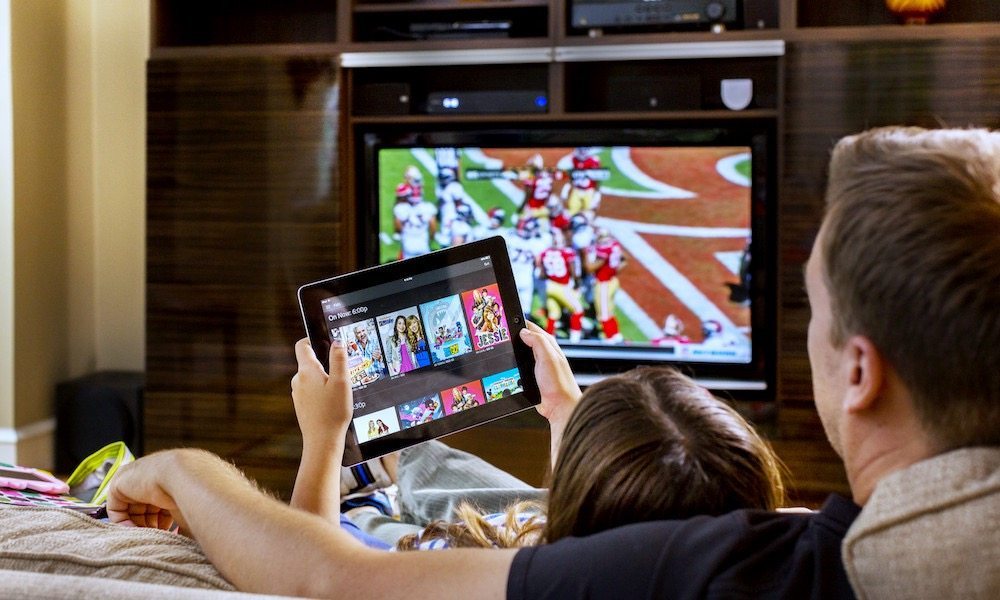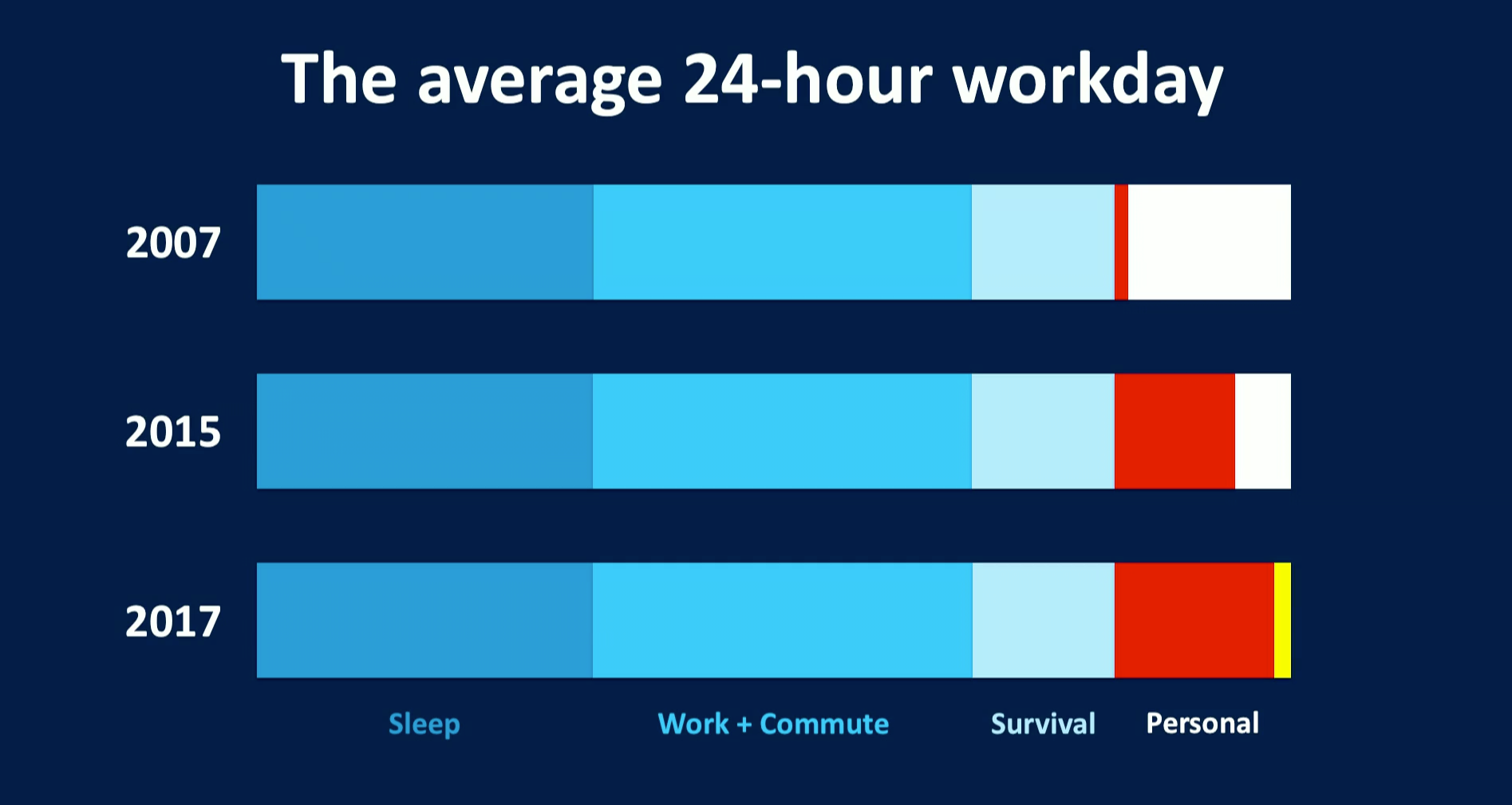Nearly All of Your Free Time Is Wasted on Screens, Data Shows

Toggle Dark Mode
A psychologist from New York University may have just figured out where all of your free time goes.
Adam Alter, an assistant professor of marketing and psychology at NYU, recently presented a series of data at the 2017 TED conference. The data, organized into three bar graphs, showed how average people in 2007, 2015, and 2017 spent a normal workday, and how time spent doing various activities has changed in the last decade. Suffice to say, the results are pretty telling.
Of course, for most people, work and sleep take up the majority of their time — about two-thirds of each day. That hasn’t changed in the last ten years. Similarly, “survival” activities, such as bathing and eating, looks to be about the same too. But notice the red part of the graph, and how large it’s become. According to Alter’s research over the past ten years, the red portion represents the amount of time an average person spends in front of screens.

As the data shows, those precious few hours of actual “free time” is almost completely gobbled up by time spent on devices — in stark contrast to 2007, where screen-related activities only took up a small portion of the average workday. The remaining tiny yellow sliver in the 2017 bar is time spent away from screens. And it’s largely “where the magic happens,” Alter said. “That’s where your humanity lives, and right now, it’s in a very small box.”
Alter pulled the data from Bureau of Labor statistics, as well as a smartphone use-tracking app called Mention. And during his presentation, Alter used the data to encourage people to strive for a healthy tech-life balance. While communication devices can connect us with people far away, he said, they can lead to us to be distracted and can foster feelings of isolation. More than anything, Alter urged people to rethink their attachment to screens and encouraged them to restrict screen time, or even abstain altogether. “Your life will be richer and more meaningful,” he concluded.






